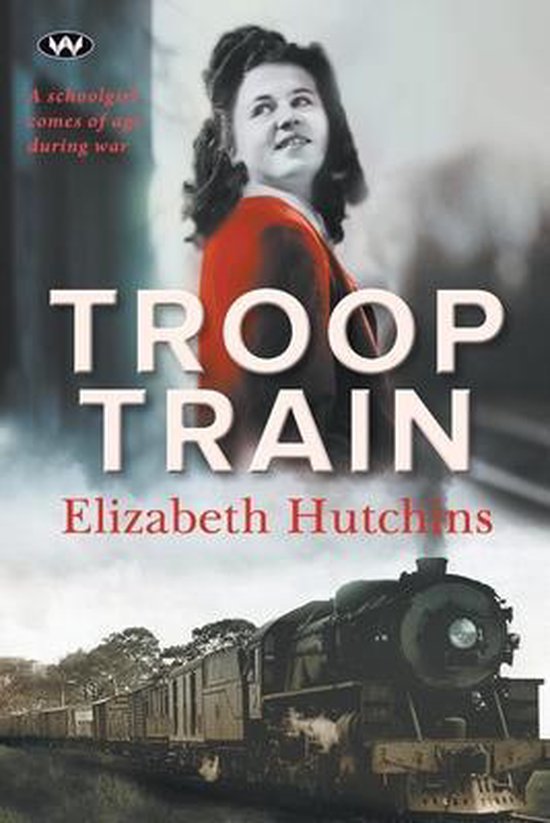 Troop Train
Troop Train
by Elizabeth Hutchins
Wakefield Press
It was February 1942 when the Japanese military overran Singapore and 14 year-old Rosemary Lister writes in her diary that they have been hanging black curtains in every window of their Adelaide house. Darwin had just been bombed and the last thing Rosemary’s family had heard was that her father Les had been heading towards Singapore with his regiment.
While her eighteen year-old sister Heather, who works on a munitions factory, gets to stay in Adelaide and live in a boarding house with her best friend, Rosemary and her mother Sylvia are moving to her mother’s sister’s dairy farm to help out after the death of Aunty Joyce’s husband.
Unlike Heather who couldn’t wait to leave school, Rosemary had dreams of going to university, or at least teachers’ college. While cooking, chooks and chores occupy her life at the farm, she writes her diary in the hope of sharing it with her father on his return.
Rosemary cuts out newspaper articles as the war continues and her family still doesn’t have any word about whether her father is dead or alive. Four years later, the final troop train arrives at the country town to lives that have been forever changed.
As the Japanese bombed Australia’s north, the government had a campaign – ‘Fashion for Victory’. Women were asked to cut down on the amount of material the used when sewing clothes – as was the norm at the time. There were to be no cuffs on trousers, no double-breasted suits and no buttons on coat sleeves. There were to be no evening frocks or party dresses for children, and there was even an austerity cookbook.
Elizabeth Hutchins uses the voices of actual women left behind as wars raged around the world by interviewing many survivors who shared their experiences. War effected three generations of women in her book and Huchins transforms the oral histories into a fascinating coming of age story for the generations of women whose lives were forever changed.
Lezly Herbert
You can support our work by subscribing to our Patreon
or contributing to our GoFundMe campaign.






